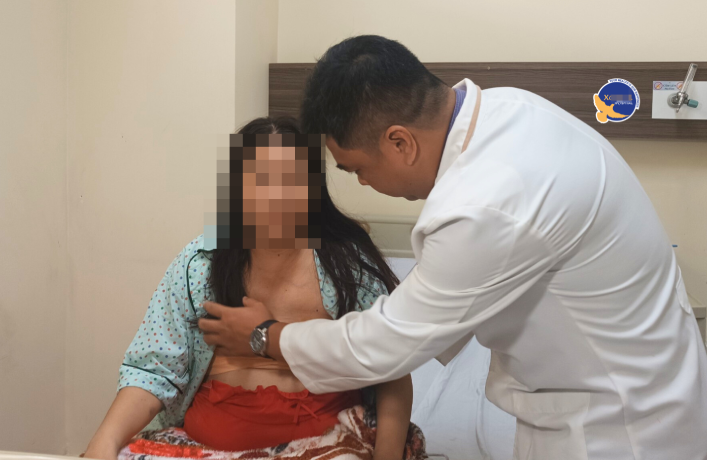
Two years ago, P.N.T. discovered a hard lump in her breast and was diagnosed with breast cancer at Ho Chi Minh City Oncology Hospital. Despite doctors' advice to begin immediate treatment, she fled the hospital out of fear.
Her family, desperate for a solution, found misinformation online claiming that honeybee venom could destroy cancer cells within 24 hours. Believing this, the woman purchased bees and allowed them to sting both breasts.
She spent millions of dong on the bees, but her condition deteriorated. Her right breast became swollen, pus-filled, and painful. In an attempt to relieve the swelling, she used a razor blade to make incisions, causing ulcers and bleeding.
Eventually, the pain became unbearable, and she sought emergency care at a hospital in Cu Chi District.
Dr. Pham Anh Tu, a specialist in oncology, confirmed that the cancer had advanced and spread to the lymph nodes in her armpits and neck. The team decided surgery was necessary to remove the infected tumors, which posed a risk of sepsis and fatal bleeding.
The five-hour operation involved removing both breasts and reconstructing the chest area, which had been deeply ulcerated by the tumors. The patient is now recovering, pain-free, and able to eat and function normally.
Doctors plan to initiate chemotherapy to improve her quality of life and extend her survival.
Dr. Tu strongly cautioned against using bees, herbal compresses, or other home remedies for cancer. He emphasized that these practices do not shrink tumors but instead worsen infection, inflammation, and can cause dangerous hemorrhaging.
“When people notice unusual signs in their bodies, especially suspected tumors, they must seek help from oncology specialists for proper diagnosis and timely treatment,” he said.
Phuong Thuy